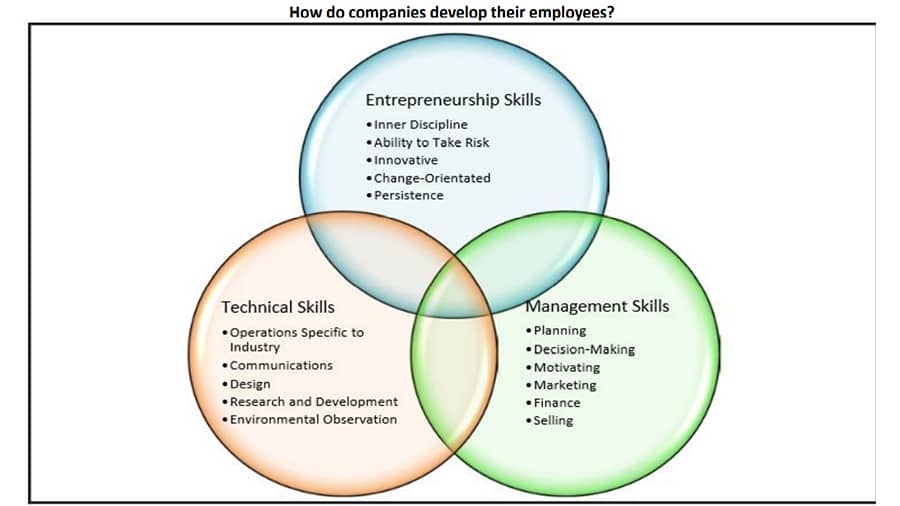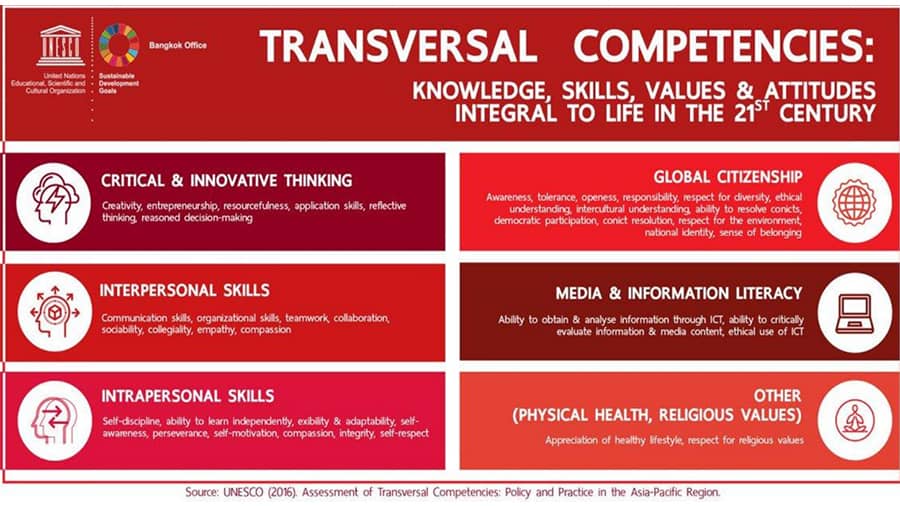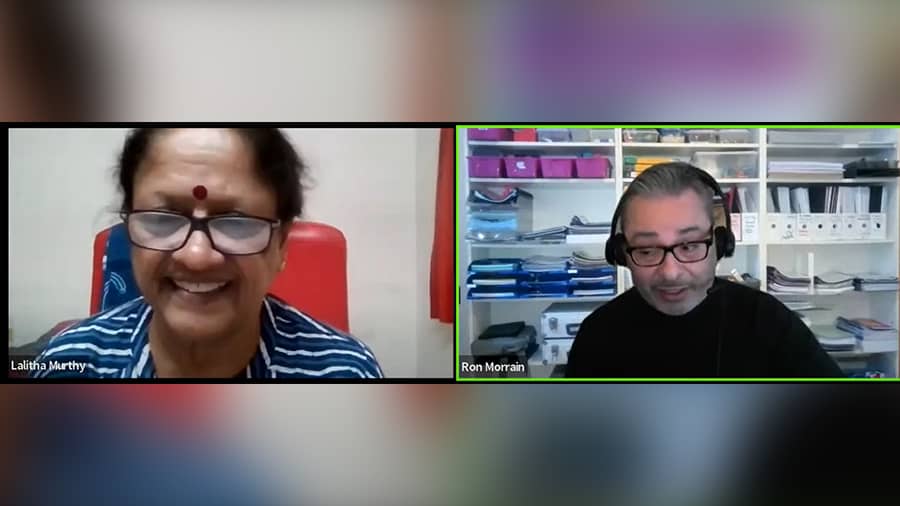The world has been changing rapidly in the 21st century. Technological advancements, growing competition in the workplace, how we’re viewing our lives – these are only some things which have been changing at a remarkable pace.
I might not have needed to sit in on a Fireside Chat on Transversal Skills to remind me of the obvious phenomena of an inconstant world, but perhaps it’s been moving so fast, unless you’ve paused to catch your breath for a moment, you might not have realised that you too have to change – pick up skills which will prop you up and sustain you through the tornado of development.
Business English consultant Lalitha Murthy conducted a Fireside Chat on November 19, with education consultant and Business English trainer Ron Morrain, to emphasise the importance of Transversal Skills. The hybrid event was hosted by Business Communication Facilitators’ Association of India (BCFAI) – with an online audience and in-person attendees in Hyderabad, Pune and Kolkata (at The Bengal Club). While it’s a conversation which addresses the concerns of business communication professionals in India, it provides useful insights into what Corporate India might be seeking in their employees.
BCFAI is a body that provides a platform for business communication professionals operating in the Indian market to share, interact, upskill, stay connected with peers and latest developments in the field and most importantly, contribute to Indian society. Its member base comprises education experts from industry and academia.
The revelation at the Fireside Chat is that the advent of the 21st Century coinciding with one’s adolescence is not in fact enough to keep one up-to-date with 21st-century skills. However, it seems ‘21st-century skills’ is a term already on its way out, and while I might have missed that bus, it seems I am just in time to catch the latest, spanking-new life-skills bus: Transversal Skills.

A slide from Ron Morrain’s presentation at the Fireside Chat on Transversal Skills
Hard Skills vs Soft Skills vs Transversal Skills
Murthy does not hesitate to ask Morrain the question which occurs to all of us — What are Transversal Skills? How do they differ from soft skills/life skills? Or is it just old wine in a new bottle?
Morrain tells us that only educators use the term ‘21st Century Skills’, and that he’s never seen it listed as a requirement in any job advert. But the list of skills employers are usually looking for are skills which “go beyond (what is traditionally known as) soft skills. And these are Transversal Skills.”
Hard skills, he reminds us, are concrete abilities such as knowing multiple languages, being able to code or work with various software. Soft skills are friendlier skills, such as exhibiting empathy, a willingness to learn, knowing how to manage time well and being able to communicate effectively.

Another slide from Morrain’s presentation
What are Transversal Skills?
From Morrain, we learn that Transversal Skills can be defined as knowledge, skills, values, and attitudes integral to life in the 21st century. These encompass the following: Critical and Innovative Thinking, Interpersonal Skills (communication, teamwork, collaboration etc), Intrapersonal Skills (self-discipline, self-awareness, self-motivation, integrity). Having Transversal Skills means going beyond being able to use software; it means being able to critically evaluate information and media content. In order to be a global citizen now, it is critical to develop awareness, tolerance and intercultural understanding, while simultaneously having respect for other religions as well as the environment.
How can we develop these skills?
A business communications trainer should exhibit high communication skills. “Good, well-developed business communication trainers seek to know what happens inside a company. They know what a company is doing, how they operate, and they also know what people need to know to grow in those companies and see success,” explains Morrain.
For example, if you’re teaching engineering students, he suggests learning about what engineering companies do in the first place. This can be done by talking to a Subject Matter Expert (SME) and gaining a perspective which you might not actually find during general research on the web. A SME will help you familiarise yourself with the subject you’re supposed to communicate and this in turn will help you create content for the class you’re teaching.
“As a trainer you have to be willing to learn as well. Have an open mind so you can integrate new things that you’re learning into what you’re doing,” is Morrain’s advice.
Skills vs competencies
A skill is something which is learnable and then can be tested. For example, if an employee claims to know how to use the Microsoft Office software, they can be tested to see if they do have the skill. A competency is different. It’s about behaviour and attitude. Decision-making, for instance, is a competency which can be learnt and then goes on to become a skill which can be tested. Essentially, competency refers to “behaviour which can be observed”. For example, being able to create a PowerPoint Presentation is a skill and then being able to deliver it exhibits communication skills which is a competency.

Lalitha Murthy in conversation with Ron Morrain
Advice for business communication teachers from Ron Morrain
Remember to factor in the difference between training university students for the workplace and people already working in the corporate world. The former have no work experience and have much to learn through lectures in classes covering Knowledge Management, Economics, etc. The latter already know how to solve problems and deal with everyday tasks from an organisational perspective – they are in the class in order to get ahead in their career.
Morrain emphasises that teaching Business Communication is about training Transversal Skills Development. Some of his tips to trainers are:
- Take an Interdisciplinary approach to the design of your courses
- Integrate Transversal Skills training as part of that course
- Find out about what Deliberate Practice is and how to use it as a training approach
- Use Case Studies in your training for Problem Solving Development (Harvard Case Studies)
- Use a Behavioral Interviewing approach to your training (see STAR Method)
- Know your training Methodologies (TBL, PBL)
“We’d love to do this chat as a workshop, next time,” said Dolon Gupta, co-founder, BCFAI. “In BCFAI, we intend to build a sense of community amongst business communication professionals through peer support. We also aim to represent the Indian perspective in international forums as well as bridge the industry-academia divide,” explained Gupta who was, until 2019, the Head of Culture & Language Initiatives at Tata Consultancy Services.
